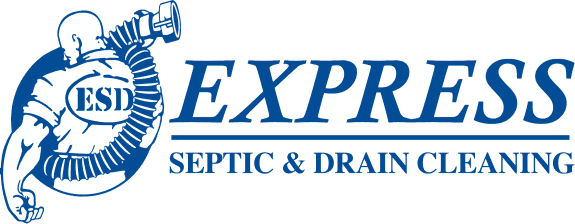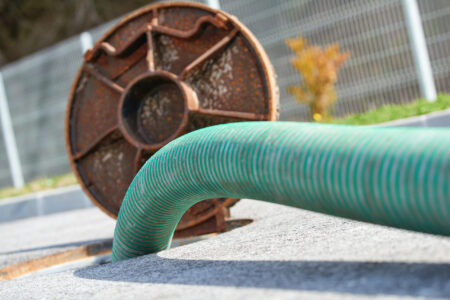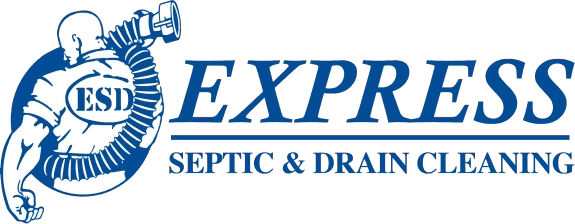If your Nampa, ID, home has a septic tank, keeping it in good working order is important. The consequences of failing to do so can be severe. A malfunctioning septic tank can lead to sewage backups in your home, damage to your property, and some pretty nasty odors. Therefore, learning the dos and don’ts of septic system maintenance is a good idea to help you avoid those consequences.
The Dos of Septic System Maintenance
Taking good care of your home’s septic system can give you up to 40 years of reliable service. To make that happen, adhere to the following dos of septic system maintenance.
Regular Septic Pumping
The most important thing you can do to keep your septic system in good condition is to have it pumped regularly. On average, your septic tank will require pumping once every two to three years. This removes all the built-up solids in your septic tanks and prevents backups. Of course, the frequency with which you’ll need septic pumping can vary. So, having yours checked by a reputable septic services provider like Express Septic & Drain Cleaning is a good idea. Our experts can let you know how often you’ll need septic pumping for the best results.
Regular Septic Tank Inspections
You should also have your home’s septic tank inspected every one or two years. This will alert you to problems with your tank before they cause any serious problems. An inspection can identify cracks in your septic tanks, tree root damage, and erosion that might compromise your system. This will allow you to take corrective action before there’s major damage.
Grow and Tend a Green Zone
It’s also a good idea to plant grass over your septic field and to keep it maintained. This will keep the soil over your septic field healthy. Grass will prevent soil erosion, which could compromise your system’s ability to function. Grass can also serve as a great early warning system for your septic system. This is because excessively green grass or fast-growing grass can indicate a leak in your septic system. It may be the only way to detect a problem before it turns into a full-blown septic system failure.
Always Use Septic-Safe Products
You should also make it a habit to purchase and use only septic-safe products for your home. This includes things like toilet paper, wet wipes, and cleaning products. Look for a septic-safe designation on any product that goes down your drain. Such products won’t damage your septic system or compromise its functionality. You may be surprised to find out how many products aren’t safe for your septic system. For example, bleach harms the beneficial bacteria in your septic tank and should be used sparingly or not at all.
The Don’ts of Septic Tank Maintenance
There are also quite a few things you should avoid doing to keep your home’s septic system working optimally. Here are some of the most important don’ts when it comes to maintaining your septic system.
Avoid Flushing Non-Biodegradable Products
One of the most critical things to avoid is flushing non-biodegradable products in your home’s toilets. Things like cigarette butts, feminine products, and cotton are especially dangerous. You should also avoid flushing things like dental floss, cat litter, and medications. They can lead to blockages and even upset the delicate biome inside your septic tank. Then, it will lose its ability to process waste and could suffer damage as a result. Also, beware of items that are advertised as flushable, like baby wipes. These wipes don’t break down as much as advertised and can clog tanks and pipes.
Beware of Excess Water Discharge
Although your septic system should be robust enough to meet your home’s needs, it has limits. Generally, your septic system should be large enough to accommodate at least two days of average water use. As a result, most residential septic tanks can hold between 750 and 1,250 gallons of water. If you’re not sure how large your tank is, one of our specialists can let you know after an inspection. Either way, it’s a good idea to be mindful of your water use to help your system work efficiently. For example, try not to do too many loads of laundry or dishes back-to-back. Also, try to spread out when the members of your household take showers or bathe. This will give your septic system ample time to discharge water into your septic field.
Don’t Build Over Your Septic Field
Unfortunately, the presence of a septic field on your property will limit how you can use it. You can’t erect any structures over it, as the excess weight may damage your septic system. For example, you can’t erect a shed or a gazebo on or near any part of your septic system. You should also avoid driving any vehicles over your septic field, as this can also lead to damage. Plus, any permanent structures built over your septic field will limit access for maintenance, compounding the problem.
Never Use Septic Tank Additives
If you’ve visited a home improvement store lately, you may have seen a variety of septic tank additives for sale. You should never use any of them in your septic system. This is true even though many septic products claim to enhance the functionality of your septic system. There is no scientific evidence to back up those claims. Plus, many of the septic additives on the market today could damage your system with regular use. Some may even cause your septic system to discharge solids into your septic field. That could turn into a costly mess in a hurry. The bottom line is that your septic system will never need additives unless something’s wrong with it. If you suspect a problem with your septic system, you should let one of our experts identify it for you.
When Your Septic Is Nearing the End of Its Lifespan
Even if you care meticulously for your septic system, there will be a point where it reaches the end of its lifespan. If you are having your tank inspected every year or two, this gives you the opportunity to check on the system and plan for an eventual replacement. Work with your local septic company to plan a replacement. Local health districts may have discounts or financing plans that you can consider.
Your Locally-Owned Septic System Specialists
Express Septic & Drain Cleaning has offered septic system installation and other septic services to local homeowners since 2006. We’re licensed, bonded, insured, and our technicians all have the latest training. We offer comprehensive septic system services, as well as drain and sewer services. So, no matter what kind of wastewater system your home has, we can help you with it. Plus, we’re available 24/7, year-round, so you never have to wait long for help when you need it. Those are all reasons why we have so many five-star reviews from satisfied local customers. We even offer financing options on approved credit to help you pay for larger projects.
So, if you need help maintaining your Nampa home’s septic system, contact Express Septic & Drain Cleaning today!



